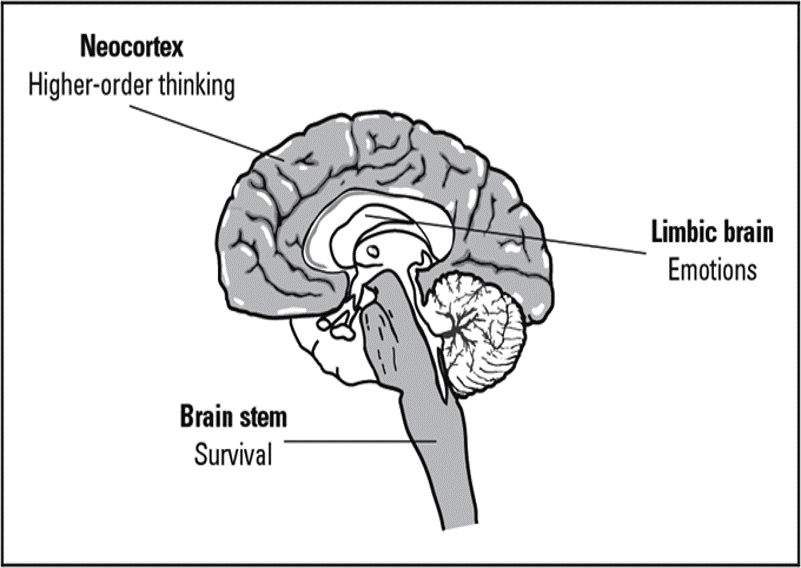Beyond Addiction: How Science and Kindness Help People Change
/In 2019, I was invited to do some teaching on addiction in the United Kingdom. To be most helpful in addressing this topic in that context, I knew I needed to be more aware of the differences between the US and UK when it comes to counselling (notice I spelled it correctly!).
In the US, our understanding of therapy has been shaped largely by Sigmund Freud. That is why those of us in the US tend to focus on “talk therapy.” The UK was shaped by empirical science and medicine. As a result, there is some skepticism for “talk therapy” or counselling in the UK. Instead, they send people to a “clinician.” Often, that means a doctor who can prescribe medication. While that may be an oversimplification and while that is changing, it does represent a significant difference. Because of this, I thought it wise for me to strengthen my understanding of the physiological nature of addiction.
I started doing some research on the topic of addiction with an emphasis on the brain and body. What is the nature of addiction from a physiological point of view? That is where the following book, Beyond Addiction: How Science and Kindness Help People Change, was so helpful.
If you have little or no training in human physiology you will be greatly helped and encouraged with what you find in the first section of the book. If you are a pastor, youth group leader or family member of someone who struggles with addiction, you would benefit greatly from this book. There are 4 major sections in the book that are directed to the loved one who is living with someone who struggles with addiction.
I. What To Know
II. How To Cope
III. How To Help
IV. Live Your Life
Here are some helpful portions taken from Part I: What To Know
I. What to Know: This section of the book provides one of the most helpful and accessible understanding of the nature of addiction and how it impacts the brain. This section is tremendously helpful because it explains the grip a substance or behavior can have on a person when the Nucleus accumbens (the reward center of the brain) gets high-jacked by an over influx of dopamine. Here is how the book describes what is happening in the addiction cycle:
1. What Is Addiction
Dopamine balance in the brain is not the only thing that gets disrupted by repeated use of a substance. It also affects key structures in the brain, such as the prefrontal cortex and limbic system. The prefrontal cortex is where we assess risks, weigh consequences, and make plans--in other words, make considered decisions. It manages input from the other parts of the brain like the limbic system and bodily regions and has been dubbed the braking system of the brain because it makes possible the judgments and decisions that go along with saying no to an impulse. When flooded with a substance, this part of the brain basically shuts down. (Teenagers have a distinct disadvantage here, as their young cerebral cortexes aren't even fully developed.)
The limbic system, in contrast, is where our sense of drive and urgency come from, generated through emotion, motivation, and in some ways the formation of memories. In the context of substance use or compulsive behaviors, this part of the brain gets excited into overdrive. So a brain that finds its limbic system acutely activated and anticipating the reward of using, and its judgment and decision-making pre-frontal cortex more or less disabled, is a brain that’s likely to go forward with the impulse and desire to use—no stop and all go. A brain in this state will register the smell of marijuana being smoked, the desire to smoke it, and anticipate the feeling that comes along with smoking, while the reasons not to smoke disappear.
The Notion of Permanent Brain Damage
We now know that our brains are constantly evolving, even as adults. According to the old model of brain function, there were our formative years in early childhood and adolescence, after which, sometime in our twenties, we coasted and declined. Now we know that our brains continue to hone old pathways and activity and forge new ones long into adulthood. This is good news for everybody—old dogs not only can learn new tricks, they should, if they want to optimize their brain functioning—and it is especially good news for people affected by substance problems.
The Brain and a Broken Leg
Think of the brain like a broken leg. A bone breaks, and with help—a cast and crutches to prevent reinjury while the person returns to a normal routine, physical therapy to regain strength and flexibility, and family and friends to help and to keep up morale—the bone heals and the person can work, play, run, and jump again. The leg may be more vulnerable to breaking after all that, and the person will need to take care to protect it, but the person can adapt and, for the most part, the body heals. The brain is no exception. (p 31-32)
As you can see, the book is always hopeful, even in the face of an often brutal struggle. The rest of Section 1 focuses on 2. Motivation: Why Do People Change, and 3. Change: How Do People Change.
While addiction is a whole person struggle, knowing more about the brain/body component can be immensely helpful as you seek to help others. If you are a loved one who wants guidance with how to help someone who is struggling with addiction, or if you work with youth or are a pastor, I highly recommend this book.









